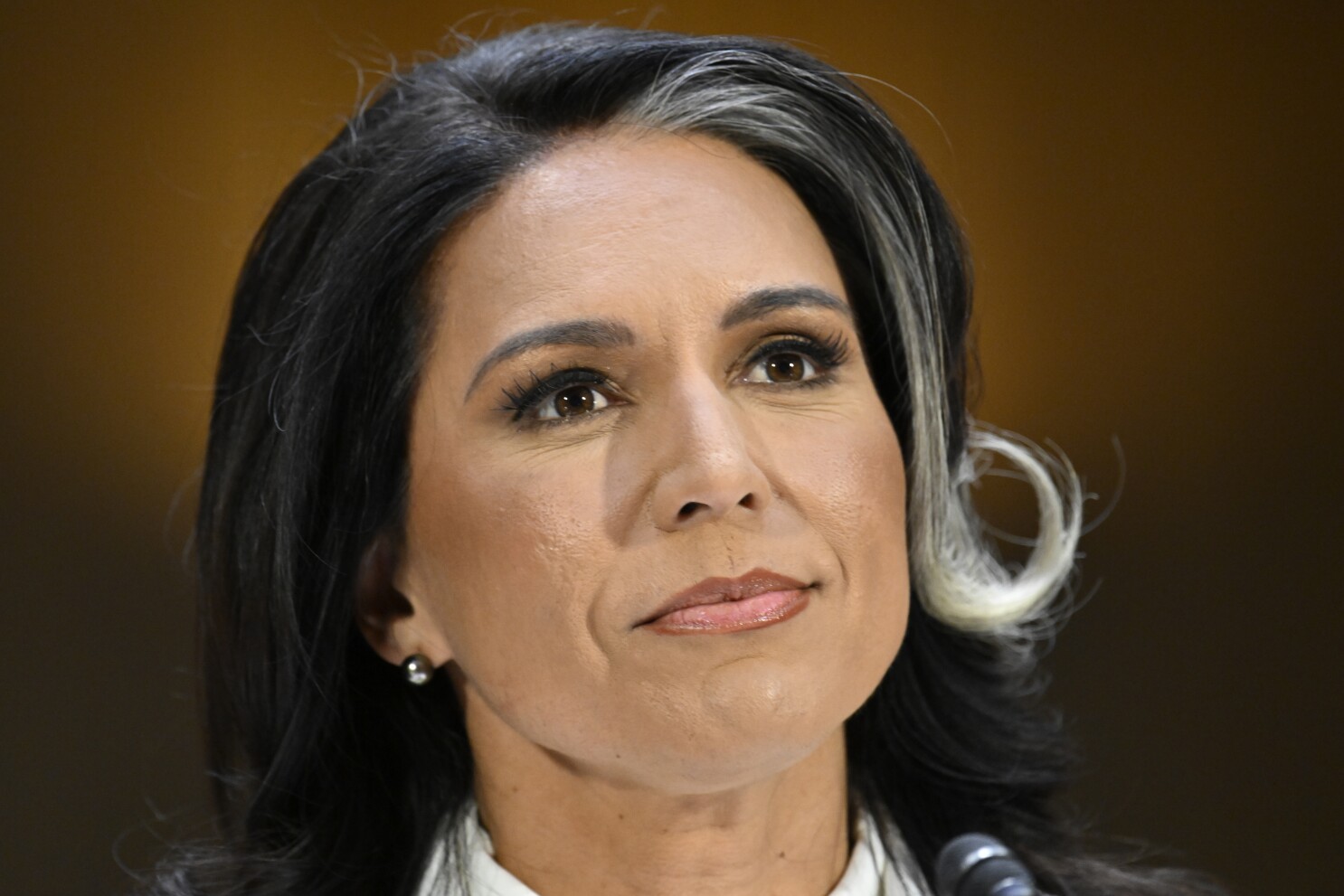Tulsi Gabbard Appointed as DNI: Bold Reforms Reshape Washington
Tulsi Gabbard’s Bold Moves as DNI Reshape U.S. Intelligence Landscape
In a groundbreaking start to her tenure as the Director of National Intelligence (DNI), former Hawaii Congresswoman Tulsi Gabbard has wasted no time asserting her authority and reshaping the intelligence landscape. Sworn in just last week, Gabbard has already taken significant steps that signal a stark departure from previous intelligence strategies. Her swift and proactive approach has garnered both praise and concern, particularly from the White House, as she embarks on a mission to redefine America’s intelligence priorities.
A Global Intelligence Strategy
Within hours of taking her oath, Gabbard made a bold move by boarding a flight to Munich, Germany. This rapid departure signals a shift in focus toward global intelligence collaboration, a stark contrast to the more insular strategies employed in recent years. Her decision to engage directly with international allies underscores her commitment to rebuilding and strengthening intelligence-sharing agreements that have weakened over time.
Upon landing, Gabbard wasted no time engaging with top intelligence and security officials from key allies, including the United Kingdom, France, Australia, and Germany. According to Deputy DNI for Strategy and Communications, Alexa Henning, Gabbard held over 30 high-level meetings, discussing cybersecurity threats, counterterrorism cooperation, and global intelligence-sharing initiatives.
This hands-on approach has been met with mixed reactions in Washington. While some view her engagement as necessary to restore U.S. leadership in intelligence, others see it as a disruption to ongoing diplomatic efforts. Regardless, Gabbard’s actions have sent a clear message: the intelligence community is shifting toward a more aggressive and cooperative stance on global security matters.
A New Era of Intelligence Leadership
Gabbard’s swift moves have unsettled officials within the Biden administration. Reports suggest that President Joe Biden and Vice President Kamala Harris have expressed reservations about the rapid nature of her policy shifts. Critics argue that such an approach could potentially undermine existing diplomatic negotiations, while supporters claim that Gabbard’s decisiveness is precisely what the intelligence community needs after years of bureaucratic stagnation.
Political analysts note that Gabbard’s immediate efforts to reestablish strong global intelligence ties may be part of a broader strategy to counteract emerging security threats. Cybersecurity has been a growing concern, with recent cyberattacks on critical U.S. infrastructure exposing vulnerabilities in the country’s defensive capabilities. By prioritizing intelligence-sharing agreements, Gabbard aims to create a stronger, more interconnected global security network.
Challenging the Status Quo
Gabbard’s tenure as DNI is already proving to be unconventional. Her decision to bypass Washington’s typical slow-moving bureaucratic processes has sparked debate about whether her leadership style will prove to be an asset or a liability. Supporters argue that a proactive, international-first strategy is necessary to ensure that the intelligence community is equipped to handle modern threats, while detractors worry that her approach could create rifts within the administration.
One of her most significant policy proposals is to increase transparency within the intelligence community. Historically, U.S. intelligence agencies have operated with a high degree of secrecy, often leaving the public and even policymakers in the dark. Gabbard has hinted at reforms that would provide more congressional oversight and public awareness regarding intelligence activities, which could be met with resistance from entrenched intelligence officials who prefer to operate in secrecy.
Furthermore, Gabbard has emphasized the need for accountability in intelligence operations. In one of her first official statements, she noted that ensuring ethical decision-making within intelligence agencies would be a priority. This includes stricter regulations on surveillance programs, reassessing counterterrorism strategies, and addressing concerns about privacy violations that have long plagued the intelligence sector.
Political Fallout and Future Challenges
Gabbard’s rapid policy shifts have fueled speculation about how her tenure will impact both domestic and international intelligence policies. Within Washington, lawmakers from both parties have voiced concerns about whether her approach aligns with broader U.S. foreign policy objectives. Some Democrats have criticized her willingness to break from traditional diplomatic channels, while some Republicans see her aggressive global engagement as a necessary corrective to what they perceive as years of weak leadership.
Beyond political circles, the intelligence community itself is watching closely. Career intelligence officials are accustomed to a certain level of predictability in leadership, and Gabbard’s disruptive approach may be met with internal resistance. However, her ability to navigate these internal dynamics while pushing forward with her vision will be a defining factor in her success as DNI.
The Path Forward
Despite the controversy surrounding her initial moves, Gabbard appears undeterred in her mission. Her vision for a more collaborative and proactive intelligence framework has already begun reshaping Washington’s intelligence priorities. If she succeeds in strengthening alliances, increasing transparency, and modernizing intelligence strategies, her tenure as DNI could mark a new era for U.S. national security.
However, challenges remain. The balance between aggressive intelligence reform and maintaining stability within the administration will be crucial. If tensions between her office and the White House continue to grow, it could complicate efforts to implement meaningful change. Conversely, if she can strike the right balance, Gabbard may cement her legacy as one of the most transformative intelligence leaders in recent history.
Conclusion
Tulsi Gabbard’s tenure as DNI has started with bold, decisive action that has already shaken up Washington. Her commitment to strengthening international intelligence partnerships, challenging bureaucratic inefficiencies, and advocating for transparency signals a shift in the intelligence landscape. While her approach has sparked debate and political friction, it also presents an opportunity for much-needed reform. As she continues to navigate these early challenges, all eyes will remain on Gabbard to see whether her unconventional leadership style will usher in a new era of intelligence strategy or create further divisions within the administration.
